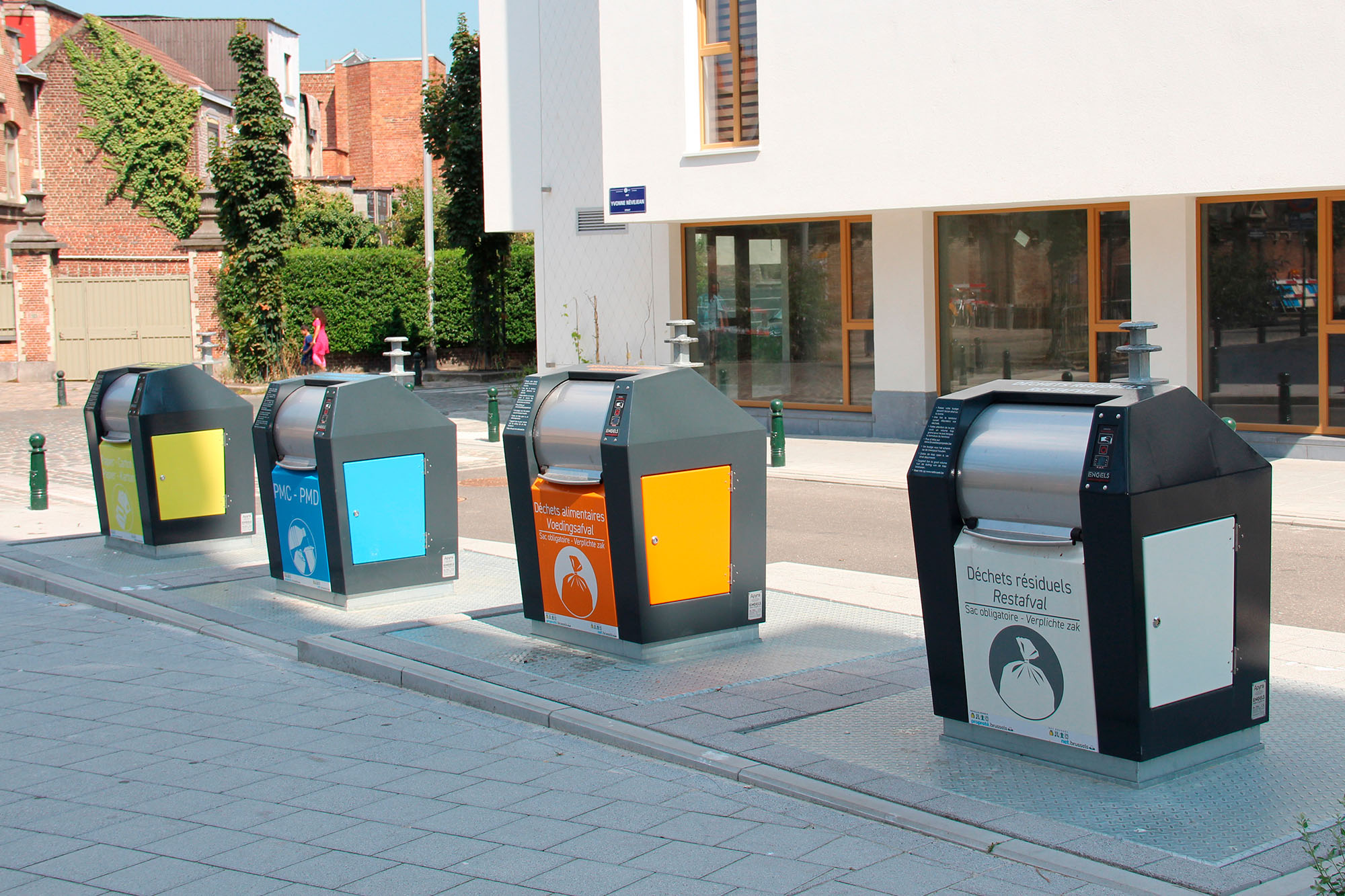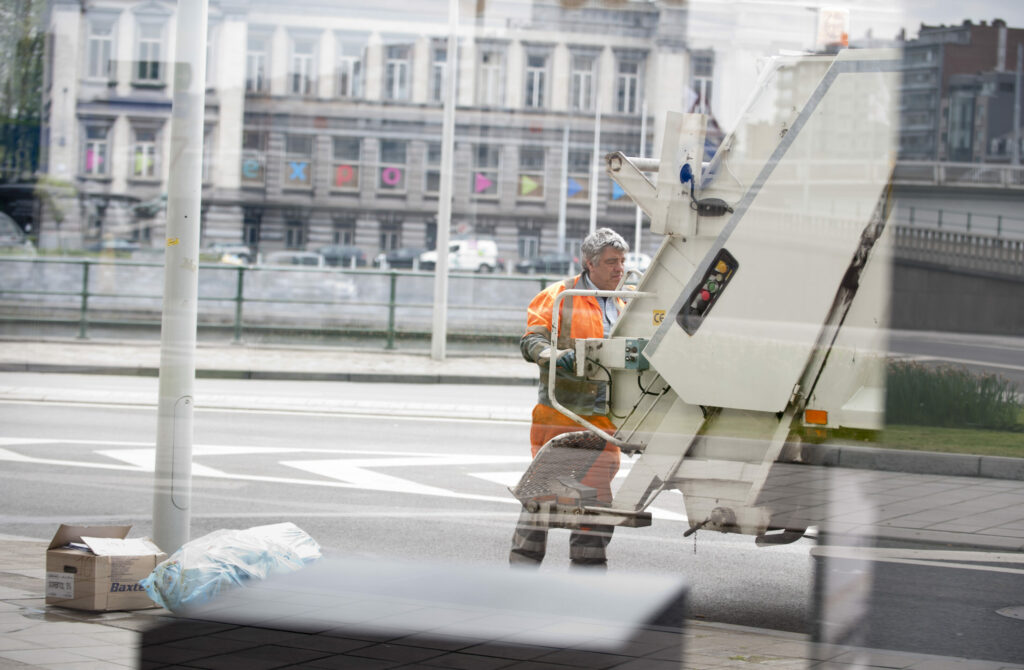In the ongoing battle between Brussels and littering, the region has started looking at new collection systems, including underground waste containers. The alternative has many benefits, but also several limitations and problems that still need to be worked out before it can be introduced in the Belgian capital.
Many Brussels' neighbourhoods continue to be plagued by litter and illegal dumping, despite measures already taken to combat the issue, such as increased fines. When looking at more creative solutions, a growing number of parties advocate replacing the current bag collection system with a network of underground containers where residents can dispose of their sorted waste whenever it suits them. This would also mean no more (bi-)weekly waste piles on the pavement, which attracts littering and vermin and often sees birds rip the bags.
Brussels Minister for Public Order Alain Maron (Ecolo) requested a study looking into a possible switch to the use of these containers, of which the first results were published on Tuesday. It involves an analysis of six European cities – Antwerp, Hamburg, Porto, Barcelona, Florence and Rotterdam – that already use containers on a large scale today, to identify what lessons can be learned from their experiences.
Cleaner streets, but regular littering
Underground containers have had some clear advantages in the cities. For instance, they have proven to be a flexible and convenient solution, benefiting especially residents of a small flat with limited storage space for waste. Results showed it also benefits cleanliness in the city: the collection of rubbish bags that are put on the pavement every few days disappeared from the pavement, making it neater and creating more space for pedestrians in the cities analysed.
Other assets are the large capacity of underground containers (especially if they have a compression system), as well as the small size of the bins above ground, making them particularly suitable for densely populated areas.
However, some negative effects were also found in every city where the system is rolled out. For example, finding space to create an underground waste collection spot is a key challenge.

Underground bin systems in the Tivoli neighbourhood in Laeken. Credit: Engels
These sorting areas also come with significant investment and maintenance costs. For example, rolling out such a system in Brussels would require 3,000 to 4,000 sorting areas with four containers for various waste each, accounting for 12,000 to 16,000 containers.
Adding to that the adaptation of the vehicle fleet, the investment would amount to €200 million. On the other hand, fewer personnel are needed for the collection.
All cities indicated that fly-tipping around the sorting areas and containers was a recurring problem. Antwerp even dismantled some sorting locations for this reason. Finally, the sorting of waste was better in places where individual bags are used, such as today in Brussels than in areas where underground containers were introduced. Barcelona, for example, got rid of some underground containers for this reason.
In the second phase of the study, the results of the containers already installed in the Region – since 2018, 23 underground containers have been installed here – and the possibilities for improvement will be evaluated, as well as the risks and possibilities of implementing this collection method in different types of neighbourhoods or housing types in Brussels. The results of this study are expected to be available by the summer.
Related News
- Why a kayak crew is cleaning Brussels' canal
- Bruxelles-Propreté will accept only one rigid bin model from this month
- Don't just bin it, sort it: Brussels fines people who ignore new waste rules
Overall, however, Maron noted that it is likely the region will move towards such a system based on the initial findings, but ultimately, the decision lies in the hands of the next government. He stressed that the initial study results show above all that a lot depends on how such a container network is introduced, including information given to residents using the system, incentives to motivate them to do it correctly, etc.
"Whatever option is chosen for the management of our waste, the aim is to provide a better service to the people of Brussels, guarantee the best possible collection and sorting rates and improve urban cleanliness," Maron concluded.

